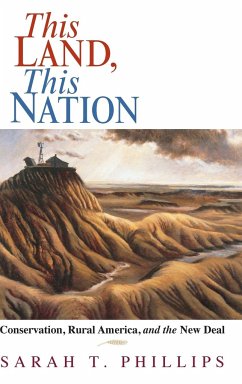This book combines political with environmental history to present conservation policy as a critical arm of New Deal reform, one that embodied the promises and limits of midcentury American liberalism. It interprets the natural resource programs of the 1930s and 1940s as a set of federal strategies aimed at rehabilitating the economies of agricultural areas. The New Dealers believed that the country as a whole would remain mired in depression as long as its farmers remained poorer than its urban residents, and these politicians and policymakers set out to rebuild rural life and raise rural incomes with measures tied directly to conservation objectives – land retirement, soil restoration, flood control, and affordable electricity for homes and industries. In building new constituencies for the environmental initiatives, resource administrators and their liberal allies established the political justification for an enlarged federal government and created the institutions that shaped the contemporary rural landscape.








